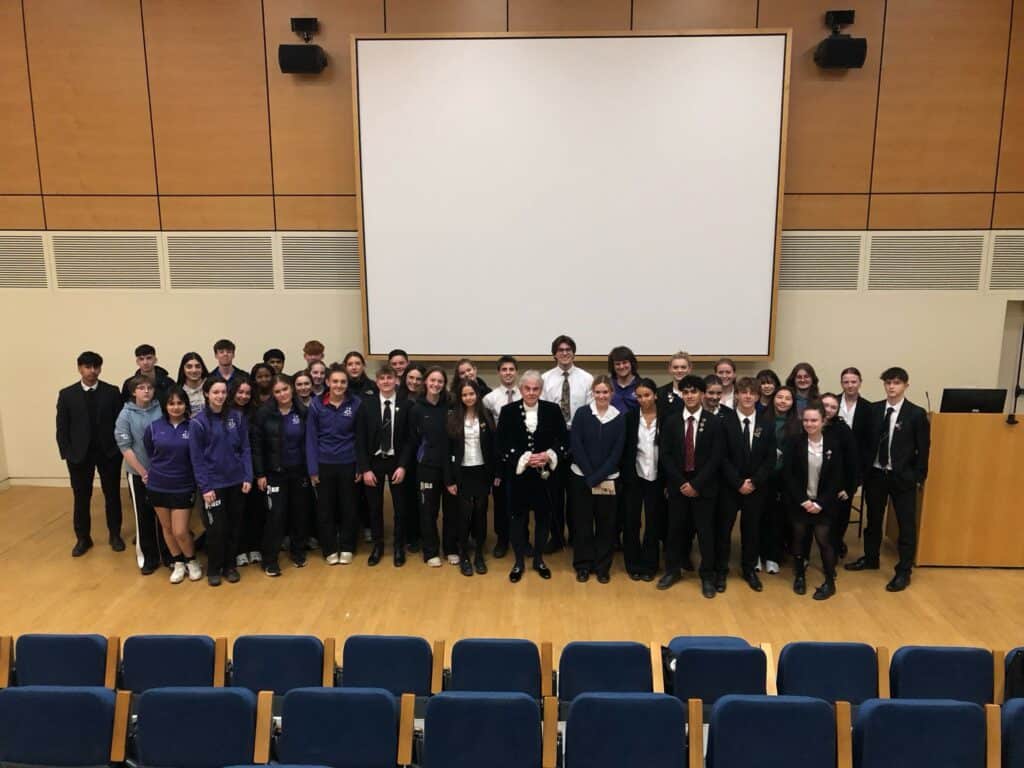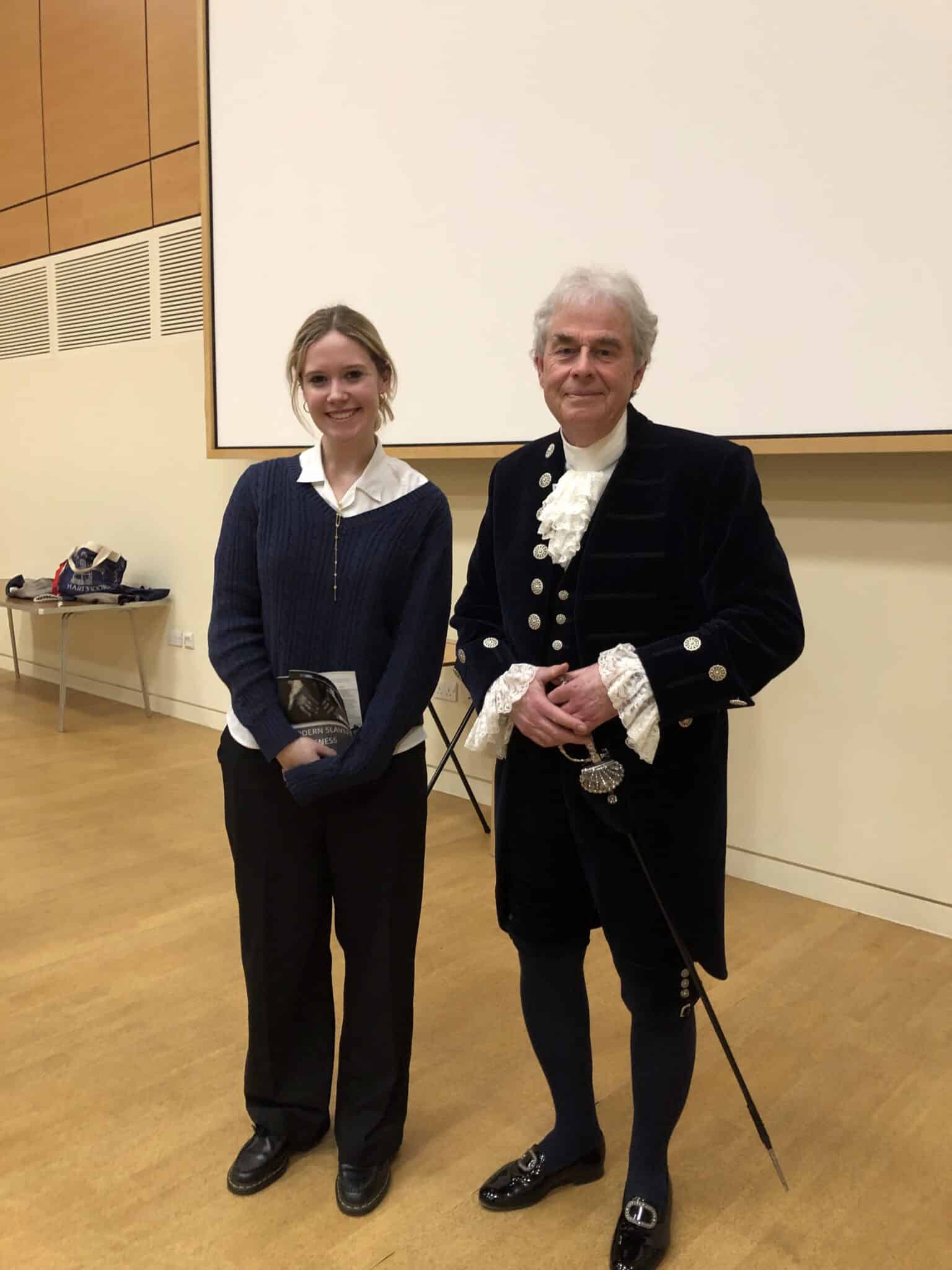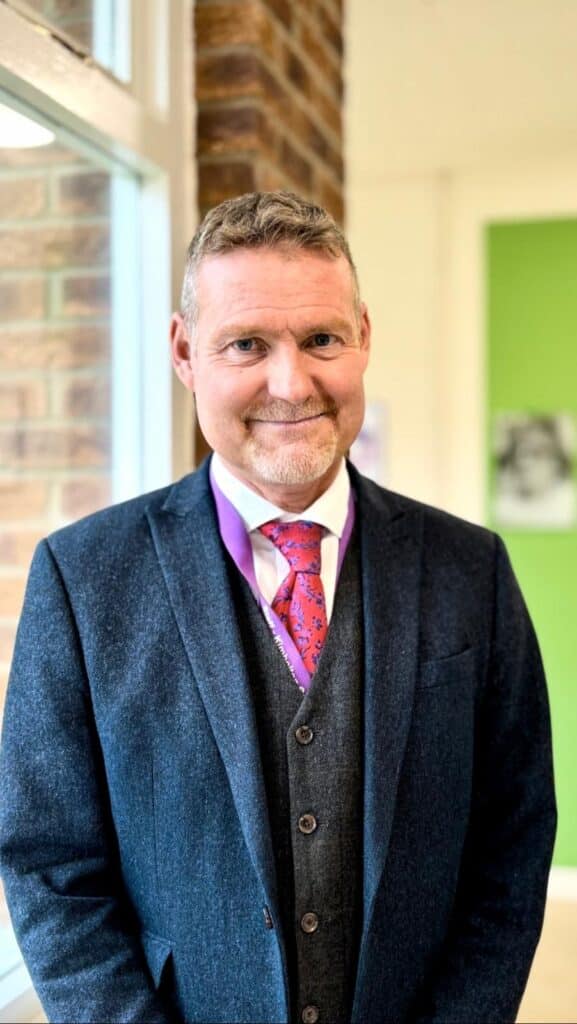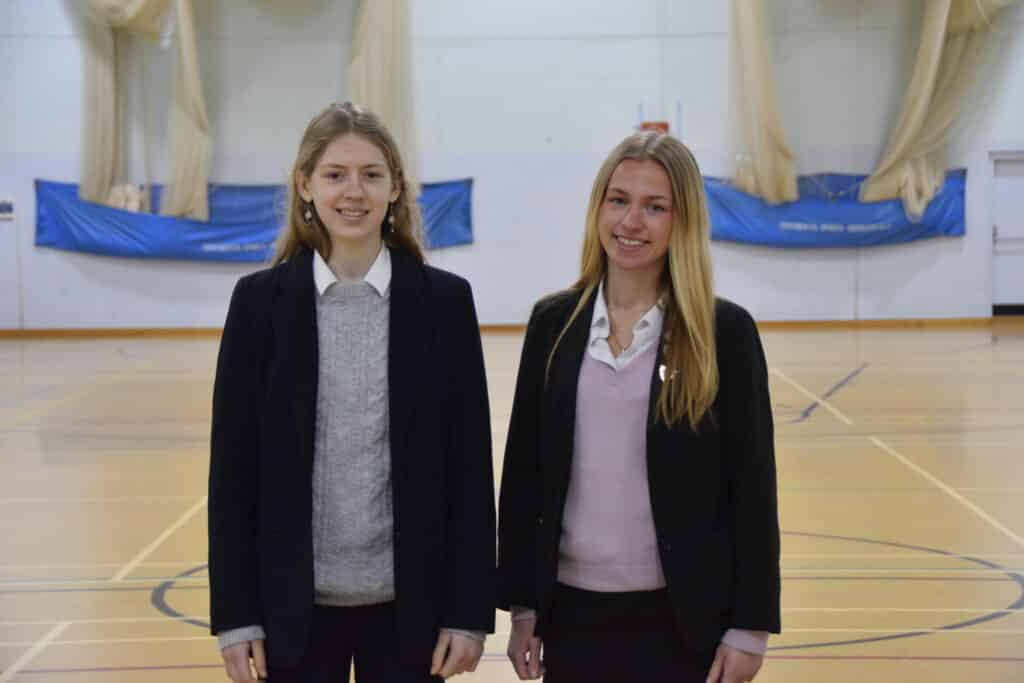Blog article written by Lara W.
On Wednesday 12 March, the two main academic societies at Kimbolton School, the Manchester Group and the Politics Society, held the honour and privilege to host David Way, the High Sheriff of Cambridgeshire. Mr Way produced an insightful and fascinating talk regarding his background, his work, and his endeavour to put an end to modern day slavery as we know it today. The students were enlightened about the tribulations of the 49.6 million modern day slaves across the world, as Mr Way highlighted the sheer extent of this problem. The High Sheriff then endured a rigorous Q&A from the societies, answering a broad range of questions from his dress to the rules regarding his political neutrality. Mr Way proved to be a grand success in capturing the students’ interests and allowing them to learn about his work, curating a very enjoyable evening for all those who attended.
Mr Way began his talk detailing his life before becoming a High Sheriff. He reminisced on his time in school, where he was encouraged by his headmaster to study Theology at the University of Manchester, an area he wasn’t really considering. He went on to read Law at St Catherine’s College, Cambridge before coming into a career in law, specialising in Private Capital. This career choice evidently inspired his two sons, both of whom studied law. It was captivating to learn about his past, and how his career in law contributed to his nomination to be High Sheriff. Moreover, it allowed the students to understand that stately and ceremonial roles can be given to those who didn’t originate from the royal circle, highlighting the meritocratic appointment system regarding the position.
Mr Way then went on to share what his day-to-day role as a High Sheriff was, as well as the historical context behind the post. We learnt that High Sheriffs had been around for 1,000 years, originating from the “Shire Reeves” who were essentially representatives of the crown in each county. They weren’t originally the most popular people in the county due to their responsibility of collecting revenues and enforcing law and order. Sheriffs are mentioned in 27 out of 63 clauses of Magna Carta, illustrating their historical importance in the running of the Shires. Nowadays, Mr Way has three fundamental assignments: announcing the winner of the General Election, announcing the death of a Monarch, and to put down – if there were to be – an insurrection against the King. Fortunately, Mr Way did deliver the talk with the stylish accessory of a sword, therefore making him equipped for this occasion.
We grasped the importance of the role of the High Sheriff through Mr Way’s everyday tasks. He spends time visiting extraordinary people, from those who have demonstrated acts of bravery, to people who have raised awareness for a certain causes. One story that struck me, was one of a Swedish student in Cambridge who intervened in a case of abuse. This sheer bravery allowed the student to be presented with a cheque by Mr Way. This is just one example of his job as High Sheriff; there are many more.
Being informed about Mr Way’s aims to make Cambridgeshire the first county to be modern-day slave free was incredibly insightful. We learnt of the serious crime that modern slavery is, and how it can manifest in the forms of forced labour, human trafficking and forced marriage. With only a year in office, tackling this issue highlights the philanthropic attitude of Mr Way, as it was clear that this problem was close to his heart. He spoke about a McDonalds in Cambridge which harboured 19 workers, all from the Czech Republic, who were working for nothing. This case illustrated the idea that modern slavery is happening everywhere and closer to home than one may think. Today, there is an estimated 49.6 million people who live in modern day slavery through forced labour and marriage. Of the 27.6 million people trapped in forced labour, 17.3 million are in forced labour exploitation in the private economy, 6.3 million are in commercial sexual exploitation and nearly 4 million are in forced labour imposed by state authorities. These statistics elevate Mr Way’s work to be even more inspiring.
The societies grilled Mr Way with a Q&A, where questions were asked from a wide range of points. Mr Way, through his answers, provided ways to spot where slavery might be occurring, which could be in commonly visited places such a nail bars. He also was quizzed on his fantastic dress, in which he explained the history and significance of it. Other pupils were keen to find out more about his involvement in the General Election and his role of returning officer.
Hosting the High Sheriff of Cambridge was a huge privilege for both Manchester Group and the Politics society, and all pupils left with a new found sense of appreciation for the position as well as an acute awareness of modern slavery.




